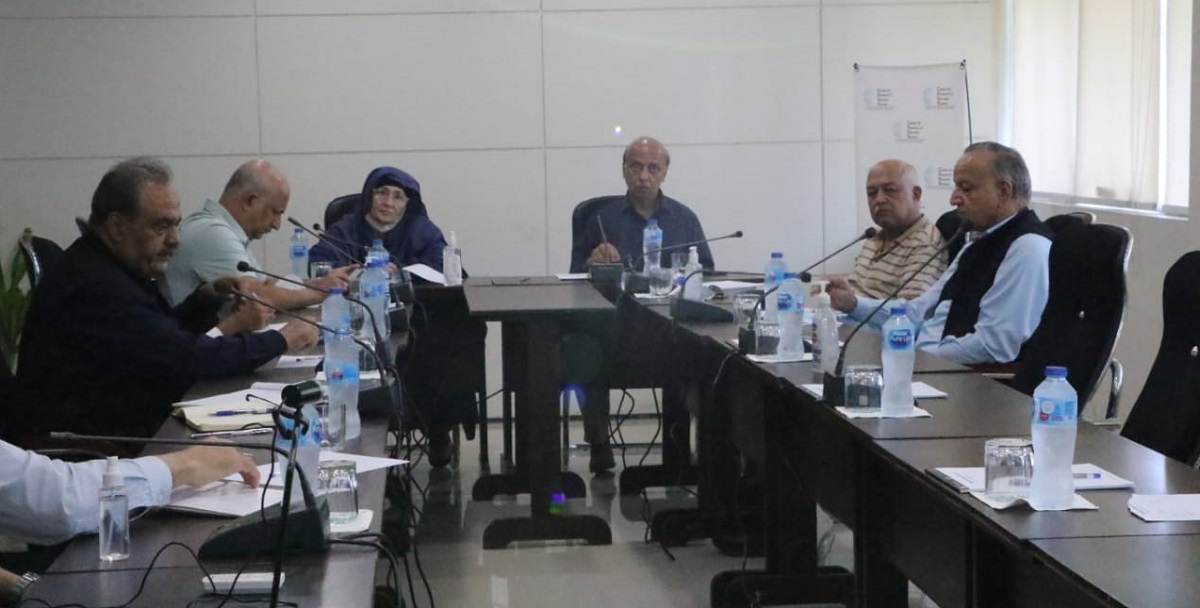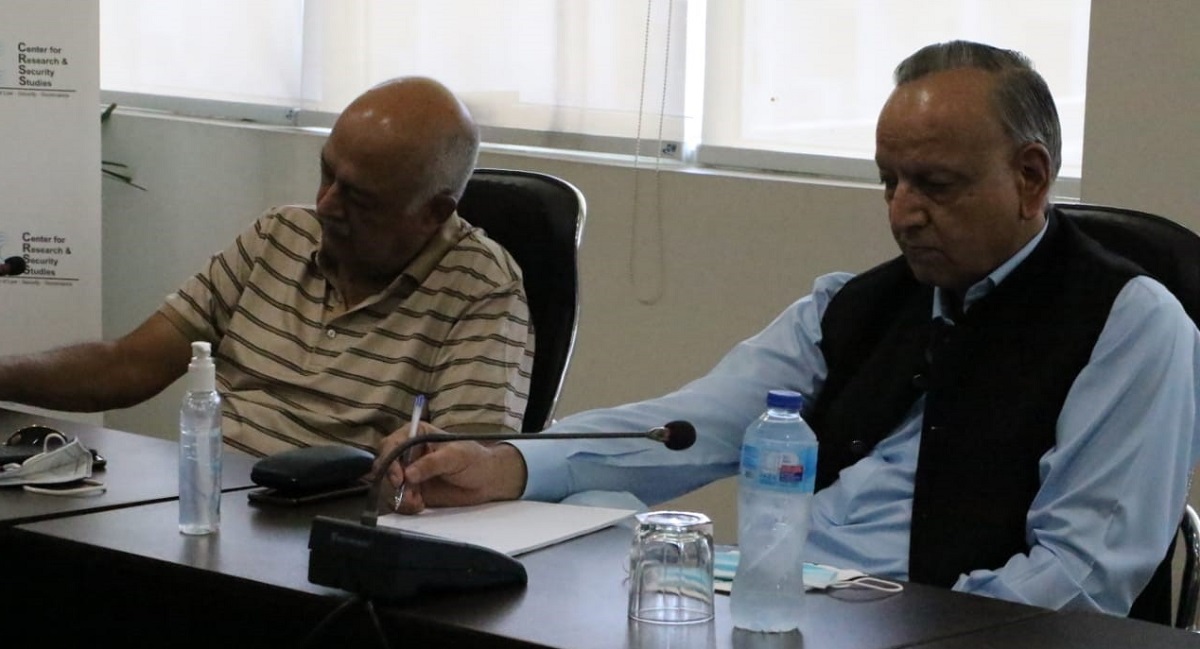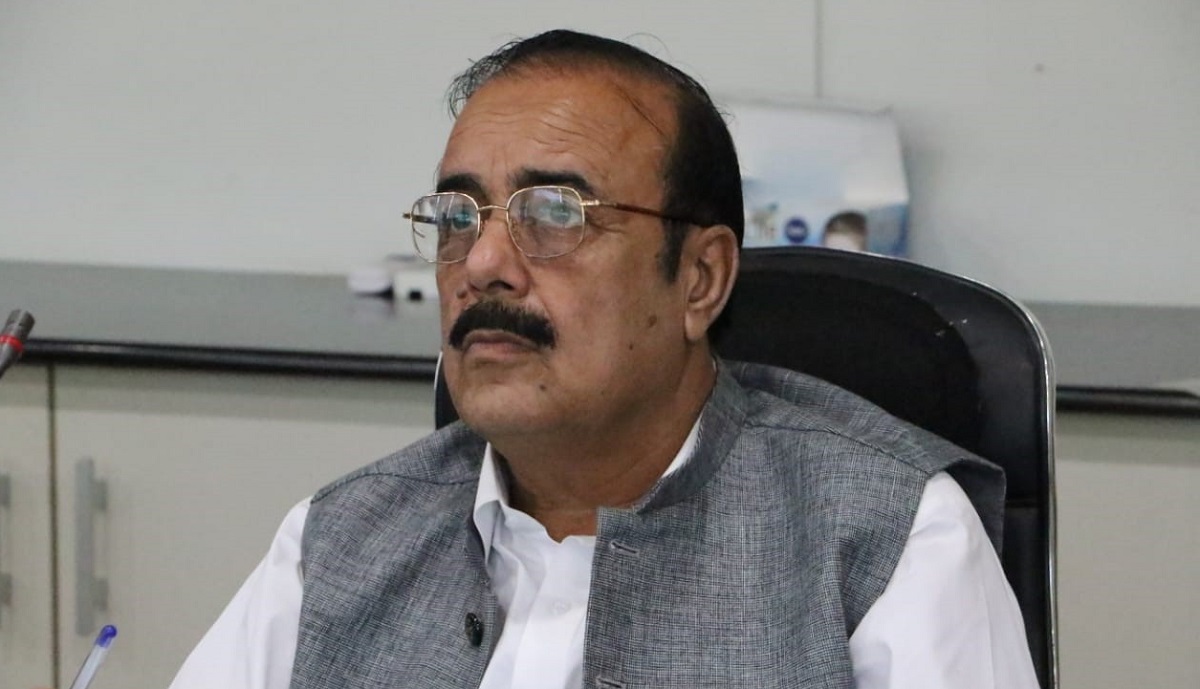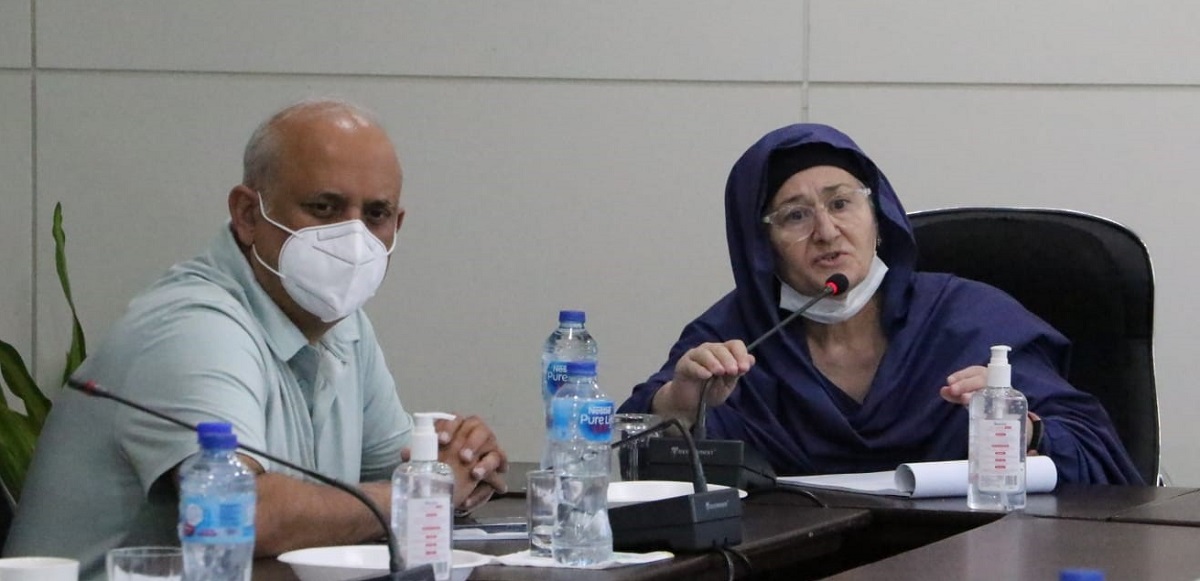Pakistan Core Committee (PCC) members’ round table conference, August 20, 2021, Islamabad
Background
The Center for Research and Security Studies (CRSS), in partnership with its Afghan counterpart, Organization for Economic Studies and Peace (OESP), has been implementing a Pakistan-Afghanistan Track 1.5/ II initiative titled: “Beyond Boundaries – Pakistan Afghanistan Regional Economic Connectivity (BB-PAREC)”. The new phase of this project commenced in June 2021.
Executive Summary
In order to discuss the ongoing political upheaval in Afghanistan and its repercussions on regional stability and connectivity, CRSS convened a round table conference of the PCC members on August 20, 2021, at CRSS, Islamabad. The aim of this conference was to discuss the ongoing challenges with the key interlocutors and pen down pertinent recommendations for assisting in devising future strategies vis-à-vis regional economic connectivity which can be further shared with the relevant policymakers and legislators for determining the future course of action. The roundtable conference was attended by the Members of the National Assembly Nafeesa Khattak, Shandana Gulzar, and Yaqoob Shaikh, former Ambassadors Ayaz Wazir and Asif Durrani, General (Rtd) Asif Durrani, former IG Police Dr. Shoaib Suddle, former Minister of State and Chairman BOI Haroon Sharif, and senior anchor-person Rehman Azhar, among others.
Key Takeaway points
The conference revealed some takeaway points that can enlighten the action plan developed by the consortium for strengthening regional connectivity. These points are summarized below.
- Pakistan should establish a specialized department for Afghan affairs, to ensure smooth bilateral and transit trade with Afghanistan.
- Pakistan must utilize its prior expertise in disaster management to assist the neighboring country in the potential humanitarian crisis situation.
- To ensure smooth supply of food and basic commodities to Afghanistan, a humanitarian assistance package along with the provision of subject specialists to fill the gap created by the departure of skilled workforce from Afghanistan must be put in place by Pakistan. This package will assist Afghanistan in system development and stabilization. This will also portray Pakistan’s soft power.
- Pakistan should focus on Afghanistan’s reconstruction, and a plan should immediately be formed in this regard. Even if Pakistan is not financially capable of implementing such a plan, it is imperative to have a plan so that assistance for the implementation of the plan is sought from international financial organizations, and other regional partners.
- Pakistan should have an appropriate refugee policy in place since influx of refugees is inevitable from a war-torn country. These refugees must be placed as an Internally Displaced Persons (IDPs) in the bordering areas only.
- Since a stable Afghanistan is essential for the prosperity of the region, it is essential that all regional countries join hands for the establishment of a regional fund for Afghan reconstruction, which does not only provide financial assistance but also works for human capital development.
Main Event Report
Welcoming the members, Executive Director CRSS, Imtiaz Gul highlighted the current political turmoil in Afghanistan and emphasized upon the need of Track 1.5/II initiatives during such testing times when a whole country of 40 million people is left to an uncertain future. Moreover, he expressed his gratitude to all members of the PCC for supporting the project by actively participating in all Track 1.5/II initiatives and disseminating the recommendations to wider audience and influential policymakers.
He also called on the participants to focus on outlining future strategies that can help Afghanistan and Pakistan in sustaining a healthy trade relationship in the face of political turmoil, because economic strength is essential for both the countries in such crucial times.

Speaker Comments
Former Ambassador Ayaz Wazir made the inaugural remarks at the meeting stating that a consensus among all Afghan stakeholders is in the best interest of Afghanistan. He also recommended Pakistan to handle the situation carefully, and to capitalize on the positive challenges created by the situation.
Commending the achievements of BB-PAREC, Gen. Asif Yaseen Malik remarked that the newly established international narrative that Al-Qaeda and ISIS are still present in Afghanistan won’t let Afghanistan become stable and will have huge repercussions on Pakistan, as this controlled chaos might be used to hinder Pakistan’s economic progress. While expressing his concern over the issue of proxy terrorism, he suggested that the only solution to this problem is strengthening of Afghan economy, which can be done by enhancing bilateral trade.

Building upon the points, MNA Yaqoob Shaikh stated that Afghanistan is expected to face an economic crunch and hence a large segment of society might go into poverty. Therefore, Afghan government should take effective measures to control inflation of basic commodities so that the population is able to sustain. Pakistan can assist Afghanistan in this regard by increasing the exports of basic commodities including food and medical supplies.

While highlighting the significance of CRSS’ initiative, Haroon Sharif, the group’s principal economist, said that engagement and discussion on the critical issues related to economy must not stop. Commenting upon the future of Afghanistan, he stated that the first challenge to the Afghan regime will be building confidence in people to restore resources and engage in business activities in the absence of any institutional mechanism. He further added that Pakistan should work for constituting a plan for Afghan reconstruction, even if it doesn’t have the capability to implement it. He added that having a plan will enable Pakistan in lobbying for Afghan reconstruction, as a stable and developed Afghanistan is essential for Pakistan’s development. Most crucially, he suggested that since currently Afghanistan isn’t capable to engage in regional connectivity initiatives yet, Pakistan should offer its road-trade route (Torkham-Jalalabad) for bilateral and transit trade, to play a role in regional economic connectivity.
MNA Nafeesa Khattak briefed the participants that Pakistan should pitch for an inclusive government in Afghanistan and should urge Islamic countries to also demand and expect the same from the Afghan stakeholders. She also stated that Pakistan should help Afghanistan by increasing its imports from Afghanistan and should also lobby for other states to pool in, in this way, they’ll be able to assist Afghanistan in its reconstruction journey. She also recommended that Pakistan should use its expertise in disaster management to help the disaster struck neighbor, in the form of humanitarian assistance.

Briefing the participants regarding the crucial role of media in these testing times, senior anchor-person Rehman Azhar stated that it is possible that media portrays Pakistan as a facilitator of Taliban, Pakistan should reshape its policies vis-à-vis Afghanistan because the stakeholders on the other side of the border have changed now, and our policies should be in line with the new leadership for the continuation of economic activity between the two countries.
Seconding Rehman’s point, Former Ambassador Asif Durrani pointed out that another challenge posed to Afghanistan could be the role played by international spoilers who might financially back unrest and violence in Afghanistan by instigating tribal rivalries, the region should be prepared to tackle this challenge. He also suggested that Pakistan should also keep in mind that other regional countries, especially India, can play a role in hindering Pak-Afghan trade relations. Pakistan should form a soft relationship with Afghanistan by catering for basic commodities for Afghanistan, like it did in the past, as this will enhance the bilateral relationship and will mitigate the threat caused by other regional actors.
MNA Shandana Gulzar stated that a peaceful Afghanistan is essential for a peaceful and stable Afghanistan. Shedding light on recent political developments in Afghanistan, Gulzar said that now that US has exploited Afghanistan for natural resources, they have left Afghanistan in turmoil. She shared that Pakistan should form its policies in line with the interests of Pakistan and the Afghan people.
Dr. Shoaib Suddle agreed with MNA Shandana and stated that Pakistan government should initiate small, doable projects in Afghanistan, which ease the lives of the Afghans at the grass-root level. Moreover, Pakistan should work for finding a serious working plan on the regional level, by involving China. A regional approach will be in the best interest of Pakistan, as it will have all the long-term guarantors on board.
In his concluding remarks, Mr. Ayaz Wazir stated that Pakistan should not hurry in making any decision and should let the dust settle. Moreover, sensitive issues should not be discussed right now, instead, the Government of Pakistan should extend a helping hand to Afghanistan.
At the end, Mr. Imtiaz Gul thanked all the participants and emphasized continuing such interactions to promote Track 1.5/II initiatives.
